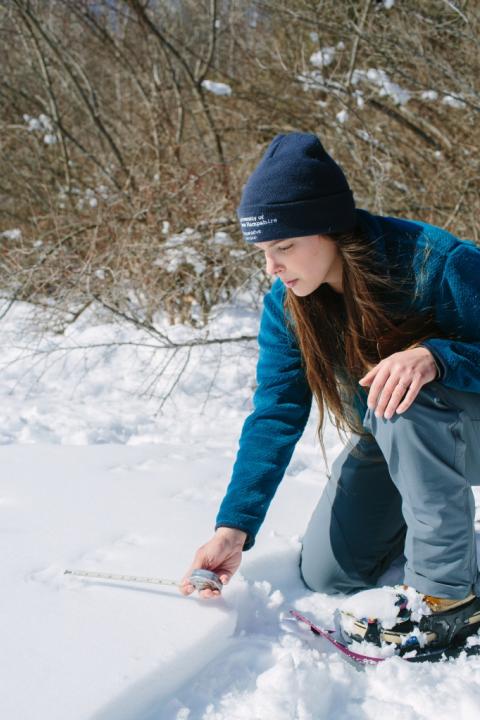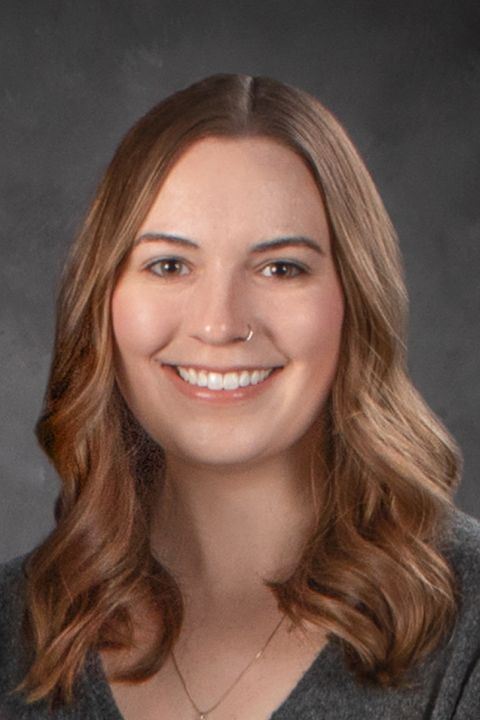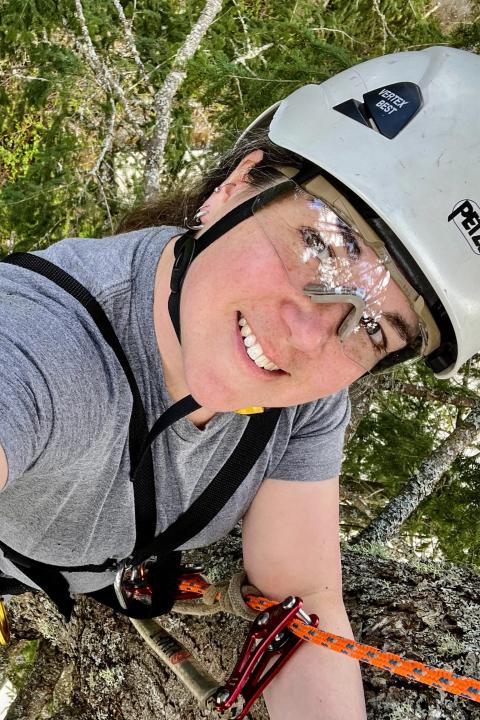
Friday, March 6, 2026
9:00 am - 4:00 pm
Sanborn Mills Farm | Loudon, NH
*Snow date Friday, March 13
$100 Registration Fee
Registration for this event is closed.
The Women Landowner Summit, part of the Women in the Woods project, is an opportunity for New Hampshire women forest landowners to come together, learn, build skills, and connect! Sessions will help you in your role as a woman landowner and build skills you can use in your woods. Topics include forest health, tree and shrub identification, wildlife track and sign, vernal pool ecology, choosing trees for firewood, and more. Connect with fellow landowners, gain valuable knowledge, and empower yourself in your role as a woman landowner. Women in the Woods programming is open to all participants, regardless of gender or sex.
Co-sponsored by: The Society For The Protection of NH Forests, NH Timberland Owners Association, and New Hampshire Project Learning Tree
Supported in part by a donation from the Alnoba Lewis Family Foundation.




Conference Schedule
Friday, March 6th, 2026
* snow date Friday, March 13
Conference Location:
Sanborn Mills Farm | 7097 Sanborn Rd, Loudon, NH 03307
Schedule:
9:00 - 9:30 am | Arrive & Registration, Coffee & Refreshments
9:30 - 9:45 am | Welcome & Introductions: The Women in the Woods Team
9:45 - 10:30 am | Keynote Presentation: A Crooked Path – Sarah Smith
10:30 - 10:45 am | Break
10:45 am - 12:15 pm | Morning Sessions (choose one)
- 1A. Exploring Nature with Kids (Indoors & Outdoors)
- 2A. Forest Pests, Diseases and Other Stressors (Indoors)
- 3A. Vernal Pool Ecology (Indoors)
12:15 - 1:15 pm | LUNCH
1:15 - 3:15 pm | Afternoon Sessions (choose one)
- 1B. Winter Tree & Shrub Identification (Indoors & Outdoors)
- 2B. Winter Wildlife Track and Sign (Outdoors)
- 3B. Improve Your Woodlot by Choosing the Right Trees for Firewood (Indoors & Outdoors)
- 4B. From Vision to Action: Setting Goals for Your Land (Indoors)
3:15 - 4:00 pm | Wrap-up
Registration
Registration for this event is closed.
Questions about registration? Contact Jennifer Adie at jennifer.adie@unh.edu
If you need an accommodation to participate in our programming, please contact Haley Andreozzi at haley.andreozzi@unh.edu or call 603-862-5327 prior to the event. Given ample time, we will make any reasonable effort to meet your needs, including language access services if requested, which will be provided free of charge.
Session Details
Morning Sessions | 10:45 am - 12:15 pm
*Please note that you can only select ONE workshop. Several of these sessions have limited capacity and some sessions take place outdoors.
1A. Exploring Nature with Kids
You love your forest and want to pass this passion on to the children in your life. What a wonderful gift you have to offer them! Join us for some tips and tricks to make it fun and easy to share your love of the land. We will use several activities from Project Learning Tree curriculum “Trees and Me” and “Seeds to Trees” to help you engage with kids and the natural world around you. Please come prepared for both inside and outside time.
*Please note this workshop will take place indoors and outdoors and is limited to 25 people.
Presenters:
Cheri Birch, NH Timberland Owners Association (NHTOA)
Jenn Scarinza, NH Project Learning Tree
2A. Forest Pests, Diseases and Other Stressors
Maintaining healthy, diverse, and resilient forests is a priority for many forest landowners. Yet new pests, diseases, and other stressors seem to emerge every day, posing growing challenges to forest health. This session will introduce a range of common forest pests and diseases found in New Hampshire.
Join Wendy Scribner, Carroll County Forester, and Lindsay Watkins, Strafford County Forester with UNH Cooperative Extension, to learn about the biology, distribution, signs and symptoms, and current recommendations for managing threats such as beech leaf disease, hemlock woolly adelgid, Asian longhorned beetle, emerald ash borer, and spotted lanternfly.
*This workshop will take place indoors and is limited to 15 people.
Presenters:
Wendy Scribner, UNH Cooperative Extension
Lindsay Watkins, UNH Cooperative Extension
3A. Vernal Pool Ecology
Vernal pools are small, seasonal woodland ponds that provide essential breeding habitat for frogs and salamanders and serve as valuable feeding areas for many reptiles, birds, and mammals. This session introduces the fundamentals of vernal pool ecology, the diverse wildlife that depend on these habitats, the major threats they face, and practical conservation actions that can support their protection. Participants will also learn the key steps for documenting a vernal pool and discover helpful resources available to landowners.
*This workshop will take place indoors.
Presenters:
Haley Andreozzi, UNH Cooperative Extension
Emma Tutein, UNH Cooperative Extension
Afternoon Sessions | 1:15 - 3:15 pm
*Please note that you can only select ONE workshop. Several of these sessions have limited capacity and some sessions take place outdoors.
1B. Winter Tree & Shrub Identification
Trees and shrubs can be trickier to identify in the winter without their leaves, but foliage is only the beginning when it comes to knowing the woody residents of your woods. We’ll practice using branching habits, bark, buds, and other clues to identify tree and shrub species. This workshop will be outdoors, so please dress accordingly, though we’ll adjust our plans to stay warm and dry if needed. Feel free to bring a hand lens, and any favorite field guides, though we’ll have some to share.
*This workshop will take place indoors and outdoors and is limited to 30 people.
Presenters:
Cheri Birch, NH Timberland Owners Association (NHTOA)
Heidi Giguere, University of New Hampshire
Jenn Scarinza, NH Project Learning Tree
Lindsay Watkins, UNH Cooperative Extension
2B. Winter Wildlife Track & Sign
Discover how to identify and interpret wildlife tracks to deepen your understanding of the species that share your land and to stay connected to the natural world throughout the winter. This fully outdoor session explores a variety of habitats while teaching you how to read the clues animals leave behind – revealing their behavior, movements, and habitat use. Learning to recognize wildlife tracks and sign can greatly enhance your awareness of which species are present on your land and how they respond to your habitat management practices.
*This workshop will take place outdoors and is limited to 15 people.
Presenters:
Haley Andreozzi, UNH Cooperative Extension
Emma Tutein, UNH Cooperative Extension
3B. Improve Your Woodlot by Choosing the Right Trees for Firewood
Cutting firewood from your woodlot is one of the best ways to improve it for wildlife, tree health and current and future value. In this workshop we will go from principle to practice, learning which trees to cut and which to leave to best achieve your woodlot objectives. Part of the workshop will be out-of-doors and include an activity where workshop participants will mark trees themselves.
*This workshop will take place indoors and outdoors and is limited to 25 people.
Presenters:
Karen Bennett, NH Extension Forester, Emeritus
Wendy Scribner, UNH Cooperative Extension
4B. From Vision to Action: Setting Goals for Your Land
Whether you’ve just inherited land or have been stewarding your woods for decades, a clear vision is the foundation of effective land stewardship. In this session, participants will reflect on potential long-term goals for their forestland and learn how to translate those goals into an actionable plan. We’ll talk through how to identify your goals as a landowner, working with natural resource professionals, and prioritizing projects that match your values. We'll also share insight into the process of planning and implementing a timber harvest, including harvest options, working with professionals, and ensuring the work aligns with your stewardship objectives.
*This workshop will take place indoors and is limited to 15 people.
Presenter:
Conference Presenters:
Haley Andreozzi
Wildlife Conservation State Specialist, UNH Cooperative Extension
In her role as the Wildlife Conservation State Specialist with UNH Cooperative Extension, Haley works with volunteers, landowners, natural resources professionals, and communities to enhance, restore, and conserve wildlife habitat throughout New Hampshire. She manages outreach, citizen science, and stewardship projects related to New Hampshire’s wildlife species and their habitats, including for species of greatest conservation need. Haley coordinates the NH Coverts Project, Taking Action for Wildlife, and the Women in the Woods program. She received her Bachelor of Science in Environmental Science & Natural Resources Management from the University of Rhode Island and earned a Master’s of Science in Wildlife & Conservation Biology from the University of New Hampshire.
Karen Bennett
NH Extension Forester, Emeritus
Karen retired in 2019 after a 40-year career with UNH Cooperative Extension helping New Hampshire landowners and foresters care for their land, first as a County Forester and then as the State Extension Forester. She specialized in private lands management, providing education to landowners, land managers, conservation volunteers, and public decision-makers. She is currently the project manager for Good Forestry in the Granite State Recommended Voluntary Forest Management Practices for NH and was recently recognized by NH Audubon with the Tudor Richards award.
Cheri Birch
Program Director, NH Timberland Owners Association (NHTOA)
In her role as program director for the NH Timberland Owners Association (NHTOA), Cheri is responsible for educational programming for NHTOA members which include landowners, forest industry professionals, and supporters who work together to promote sustainable forest management, conserve working forests, and ensure a strong forest products industry. Outreach efforts to connect with educators and students in grades 7-12 are also a big focus of programming. These initiatives include N.H. Forest Career Field Day and the Forests of N.H. Teacher Tour now entering its fifth year. Subsequent to the first women’s focused chainsaw class offered by NHTOA in 2021, “Women in the Woods” was formed as a three-way partnership between NHTOA, UNH Cooperative Extension and The Society for the Protection of NH Forests. Cheri holds a BS in Forest Management from the University of Maine, at Orono and has also worked as a forester and environmental science teacher in southern New Hampshire.
Heidi Giguere
Forestry & Wildlife Lecturer, University of New Hampshire
Heidi is a Lecturer in the Department of Natural Resources & the Environment at the University of New Hampshire. In this role, she strives to make learning fun for her students, while instilling in them a passion for the natural world. Heidi’s areas of interest are forest health, forest inventory techniques, and wildland fire ecology. Before joining the team at UNH, Heidi spent her time exploring out west, where she served as a wilderness guide for a variety of programs. When not working, you can find Heidi nose deep in a good book with some delicious tea on the ready or embarking on new adventures both near and wide.
Jenn Scarinza
NH Project Learning Tree Coordinator
Jenn is responsible for planning and delivering the Project Learning Tree curriculum professional development to New Hampshire educators and school administrators. As a part of the NHTOA staff, she also helps to plan and conduct events like the Forests of NH Teacher Tour. Jenn grew up in Loudon, N.H., training 4-H oxen and exploring the woods. She earned an A.A. degree from Sterling College in Rural Resource Management, with a concentration on Education and Leadership, and a B.S. from UNH in Adult and Occupational Education. She taught high school students for 21.5 years in a variety of forestry, natural resource, agriculture, and outdoor recreation courses. A lifelong sugarmaker, she enjoyed making syrup and managing about 75 acres of fields and forests with her (late) husband, John. Jenn and their 4 year old son, Ethan, live in Randolph, N.H.
Wendy Scribner
Natural Resources Field Specialist, UNH Cooperative Extension
Wendy Scribner serves as a field specialist in forestry and natural resources in Carroll County, and she is also known as the Carroll County Forester. Wendy provides landowners, communities, and others with assistance on managing their woodlots. Topics include enhancing wildlife habitat, improving forest and tree health, developing management plans, selling timber, and controlling invasive plants. Wendy is a licensed forester in both NH and Maine and holds a Bachelor’s and Master’s Degree in Forestry from UNH.
Sarah Smith
UNH Cooperative Extension, Emeritus
Sarah retired from UNH Extension after 27 years as the Forest Industry Specialist. In that role, Sarah worked closely with NH’s loggers, sawmills and other wood businesses to provide information and education to improve harvesting, processing and marketing of wood products. She also worked closely with the State’s economic development professionals to ensure a deeper understanding of NH’s forests and forest industry.
Prior to her work with UNH, Sarah worked in the hardwood lumber industry, modular housing industry and taught school for a few years. Combined with a BS in Forestry and MS in Adult Education, Sarah’s career followed a crooked path of interests and opportunities.
Emma Tutein
Community Conservation State Specialist, UNH Cooperative Extension
Emma has worked at UNH Extension since 2008 in a variety of roles. In her current role as Community Conservation State Specialist, Emma works with conservation professionals and volunteers to support their work in protecting New Hampshire’s natural resources. She coordinates educational and professional development opportunities for land trust staff, conservation commissioners, landowners, and others with interests in land conservation and land stewardship. With a background in Wildlife Ecology, she developed a passion for wildlife track and sign many years ago and loves sharing this passion with others as a way to connect people with nature and build support for land and wildlife conservation.
Lindsay Watkins
Forest Resources Field Specialist, UNH Cooperative Extension
Lindsay is UNH Cooperative Extension’s Field Specialist in Forest Resources, also known as the County Forester, for Strafford County and Belknap County. Before joining Extension in 2023, she worked as a consulting forester and arborist in the San Juan Islands in Washington, but she considers New Hampshire her "chosen home state." Prior to her detour to the upper left corner of the country, she worked for the Appalachian Mountain Club, the Nature Conservancy, and the US Forest Service. Lindsay has an M.S. from the Field Naturalist Program at the University of Vermont and a B.S. in Natural Resources from Cornell, and she considers herself a "Professional Tree Nerd."
Wendy Weisiger
Managing Forester, Society for the Protection of New Hampshire Forests
Wendy came to work for the Forest Society in 2004 as a forester. She holds a Bachelor’s degree in forestry from the University of New Hampshire. She previously worked as a forestry technician for the NH Division of Forests and Lands and as a survey technician for an engineering firm. She is a New Hampshire Licensed Professional Forester and SIT. She has been active with The Society of American Foresters, NH Project Learning Tree, NH Tree Farm Committee, the Women in the Woods Program and many other forestry-related groups statewide.
-
Extension State Specialist & Professor, Wildlife ConservationEmail: Haley.Andreozzi@unh.eduPhone: (603) 862-5327



